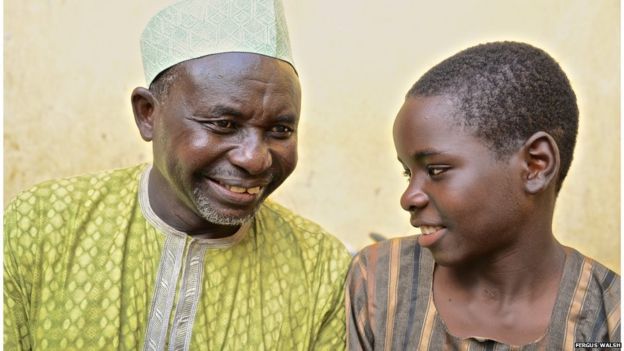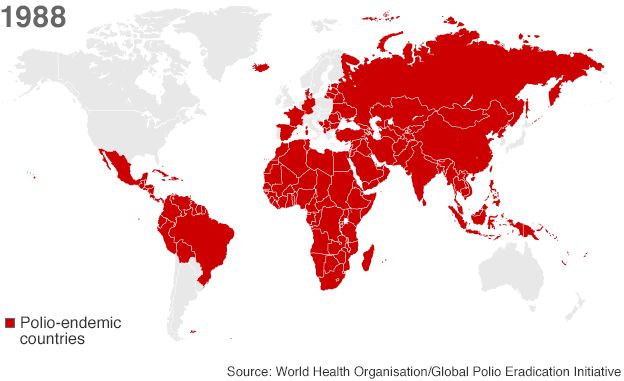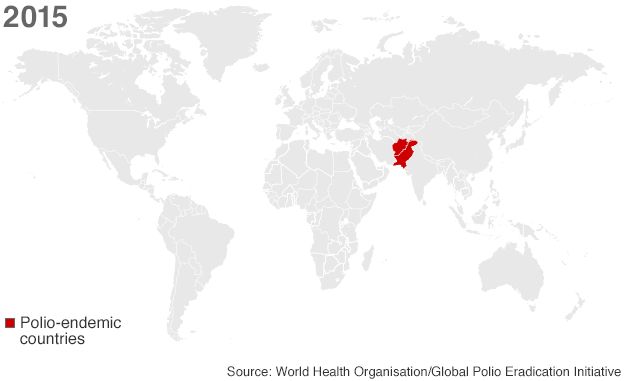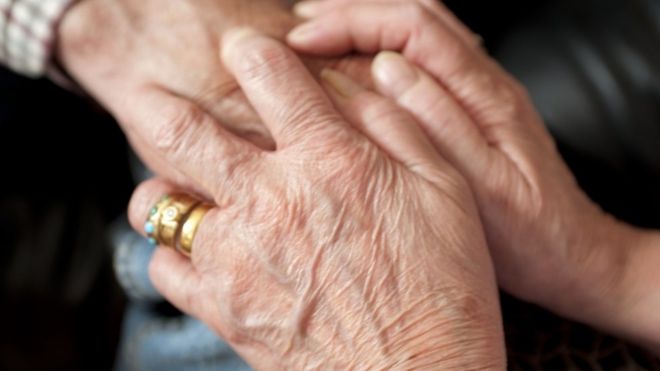 WHO/T.Moran
WHO/T.Moran
Nigeria has been removed from the list of polio endemic countries in what is being regarded as a "milestone" on the quest to eradicate the disease.
The announcement by the World Health Organization (WHO), was made at a meeting of the Global Polio Eradication Initiative (GPEI) in New York.
It follows Nigeria going more than a year without a case of wild - naturally occurring - polio.
Three years without cases are required before it can be declared polio free.
The decision means there are just two endemic countries - Pakistan and Afghanistan - where transmission of the paralysing virus has never been interrupted.
Jean Gough, Unicef country representative in Nigeria, told me: "This is an important milestone, but it is too early to celebrate. We need to continue the efforts at every level if polio is to be eradicated."
Polio is spread by poor sanitation and contaminated water and usually affects children.
The virus attacks the nervous system and can cause irreversible paralysis - usually of the legs - within hours.
 Getty Images
Getty Images
GPEI was established in 1988 when tens of thousands of children in more than 125 countries were paralysed by polio each year.
Partner organisations include the WHO, Rotary International and the Bill and Melinda Gates Foundation.
Challenge
Nigeria's progress against polio has been hard-fought.
In 2003, some northern states boycotted the oral polio vaccine for nearly a year after scare stories that it caused sterilisation.
It led to the virus spreading to many countries that had been declared polio free.
In 2013 nine vaccinators were shot dead in Kano. But instead of being a deterrent, it galvanised support at every level.
The Nigerian government declared polio a national health emergency and greatly increased the number of vaccinators.
And community and religious leaders voiced their support.
As a result, the number of families refusing to have their children immunised has decreased sharply.
Boko Haram
The success has come despite the Islamist militant insurgency in north-east Nigeria.
Earlier this month Unicef said half a million children had fled attacks by Boko Haram over the past five months.
Vaccine teams have been focussing attention on displaced families who have moved elsewhere in Nigeria, as well as fleeing to neighbouring countries like Cameroon, Chad and Niger.
I last visited Kano in northern Nigeria in 2005 and met Aminu Ahmed, and his son Umar - both of whom have been paralysed by polio.
 Fergus Walsh
Fergus Walsh
Like other children, Umar did not get the drops of polio vaccine and was infected, partially paralysing his right leg.
His father - who runs a charity making hand-operated tricycles for polio sufferers - has become a campaigner for polio immunisation.
I went back to meet the family. Umar is doing well at school and he now joins his father in persuading families to be immunised.
Aminu Ahmed told me: "Ten years ago, it was very common to see families saying no to the vaccine - now they all want it.
"We say you do not want your children to be unable to walk, like me."
Polio progress


Wild polio
Nigeria, like the rest of the world, is switching from the oral polio vaccine, given in two drops into the mouth, to an injectable, inactivated form of polio vaccine (IPV).
The oral vaccine, which contains a weakened vaccine virus, can in extremely rare cases, cause a form of polio - circulation vaccine-derived poliovirus (cVDPV).
There has been one case of cVDPV in Nigeria this year.
I met the family of the last child to be infected with wild polio.
Isau was 16 months old when he was infected in July 2014.
His right arm lies lifeless at his side - the muscles have withered and he cannot use them.
His mother, Kanduwa Ahmadu, has just given birth to another boy. She told me: "I will make sure my baby son gets all the doses of polio vaccine he needs. I know that life will be very hard for Isau."
It's more than a year since there has been a case of wild polio in Africa.
Eradicating the disease from the continent would be a huge achievement.
But health officials fear a resurgence of the disease unless efforts are continued to immunise every child.
India was declared polio free last year.
So far this year there have been 41 cases of wild polio worldwide, compared to 200 at the same point last year.




